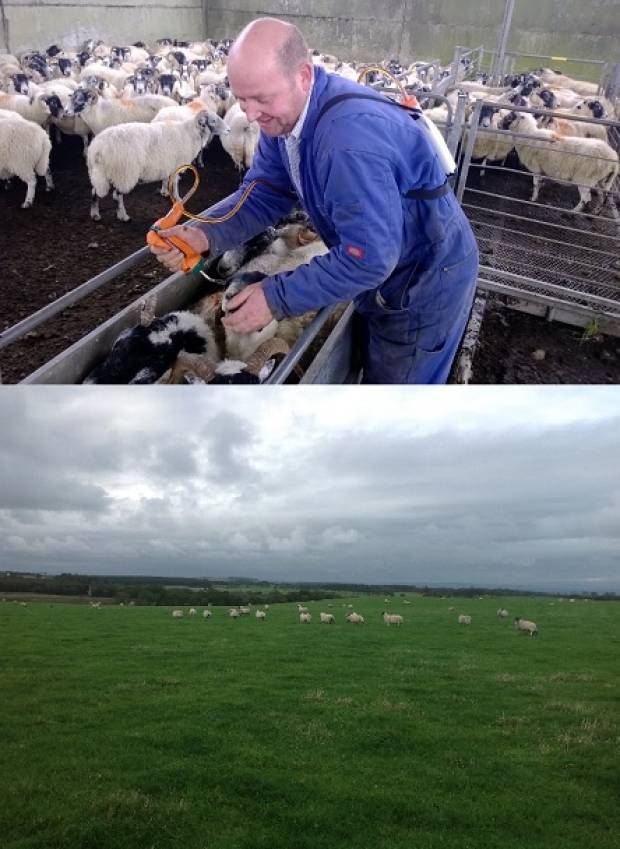
George's Liver Fluke Journal: Entry 3
12th December 2013
George Milne, NSA Scotland Regional Development Officer, farms near St. Andrews on the east coast of Scotland. This is not a part of the world where fluke would be expected to cause major losses, but in the winter of 2012/13 that is exactly what happened. George has kindly let his farm be used as a fluke surveillance farm in a project funded by the Scottish Government and Novartis Animal Health, and supported by Moredun Research Institute, Scottish Rural College, University of Edinburgh , Parkside Vets and the National Sheep Association. The surveillance farm is part of the Scottish Fluke Action Group, a group representing many aspects of the Scottish sheep industry that aims to give real-time information to vets and farmers on managing fluke. George will be adding to his journal on a regular basis; you can read the first instalment of this story here and the second journal entry here.
George’s Journal
During the summer I have been working with Richard and Robert from Parkside Vets to collect dung samples to see what the level of fluke is on the farm, so I know when I need to treat and what the fluke challenge is like this year.
We have been using two sentinel groups of 12 sheep and the dung samples were tested to see if there were fluke eggs, which are shed by adult fluke, plus we were also trying out a new test that looks for fluke protein (copro-antigen test) that can see if there are younger fluke present. The samples were sent to the lab (see top set of pictures).
The animals we are testing were last treated with a closantel-based product (Flukiver) in August and we have been sampling them to see what the fluke challenge is like this year and to give me guidance on when I need to treat the whole flock. The fluke have to be 10-12 weeks old before they produce eggs and it was November before we saw any eggs. This means the sheep picked up new infection immediately after the last treatment. Fluke treatment only works on the day of treatment; there is no continued effect like there is for some wormers. Fortunately the copro-antigen levels have stayed low, which means the fluke levels on my farm are much lower than last year – which is a relief.
In discussion with the vets, the results are not too surprising as the summer has been very dry. However there are fluke present and the sheep will still be picking up fluke cysts so it was decided that all the pedigrees and lambs will be treated now with closantel. Closantel kills fluke before they are old enough to lay eggs, but it doesn’t kill the very young stages. Triclabendazole is the only fluke active that kills the very young fluke but unfortunately, after doing a test, I found I had triclabendazole resistant fluke on my farm. If you think you have resistance I would speak to your vet about testing for it. Don’t just assume resistance is there, as losing triclabendazole from the products I can use makes managing fluke harder. The commercial sheep will be treated apart from the sentinel animals, which we will test again at the beginning of December.
Sheep for Restocking
We brought Blackies and lambs in this September and at that time we tested to see if they had fluke eggs. They didn’t but that early in the season there may not have been adult fluke in them so they were treated with a triclabendazole-based product (Combinex) in case they had young fluke in them. Triclabendazole was ok in this situation, as there was no known resistance on the farm we bought them from. We also treated with a monepantel product (Zolvix) to kill any round worms and gave a doramectin injection (Dectomax) in case of scab. We will test the Blackies again in November to see if there are any fluke or worm eggs before we decide if they need more treatment.
Thankfully in Fife the fluke challenge is much less than last year, plus the grass and sheep are in much better condition, but in other areas and farms it will vary so I would recommend discussing with your vet or prescriber about controlling fluke on your farm this autumn.
Next month we will see if the Blackies need treating and if the fluke egg counts and copro-antigen level in the sentinel groups have gone up.



